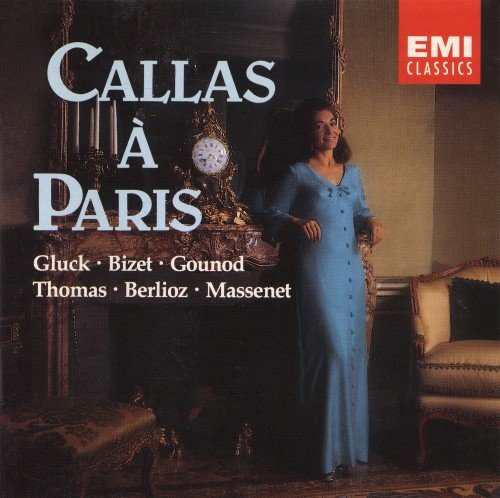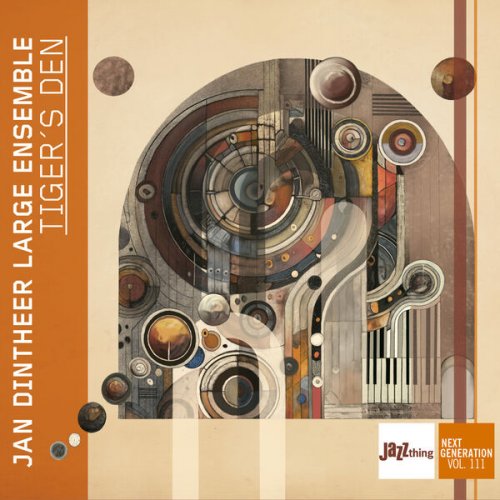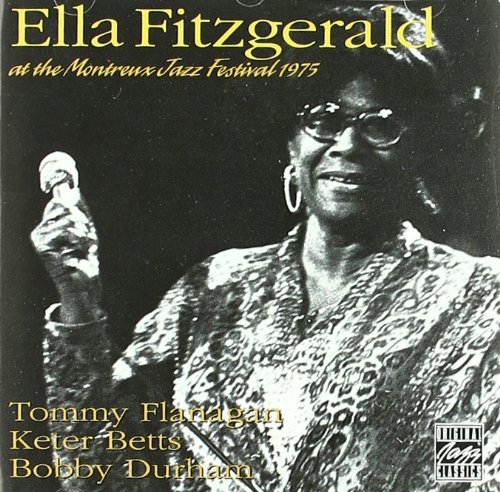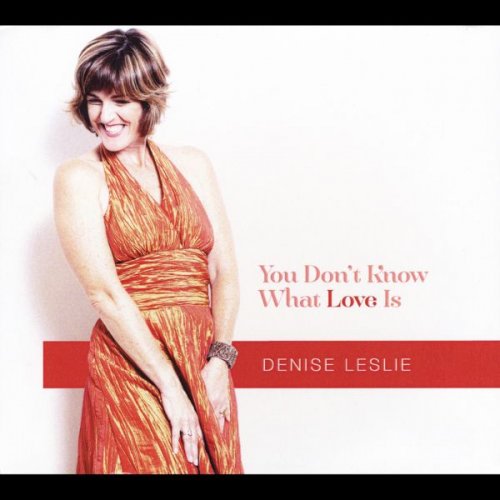Maria Callas - Callas A Paris (1987)

Artist: Maria Callas
Title: Callas A Paris
Year Of Release: 1987
Label: EMI Classics
Genre: Classical
Quality: FLAC (image + .cue, log, artwork)
Total Time: 73:48 min
Total Size: 350 MB
WebSite: Album Preview
Tracklist:Title: Callas A Paris
Year Of Release: 1987
Label: EMI Classics
Genre: Classical
Quality: FLAC (image + .cue, log, artwork)
Total Time: 73:48 min
Total Size: 350 MB
WebSite: Album Preview
01 Gluck, Orphee et Eurydice - Acte IV. J'ai perdu mon Eurydice
02 Gluck, Alceste - Acte I. Divinites du Styx
03 Bizet, Carmen - Acte I. L'amour est un oiseau rebelle (Habanera)
04 Acte I. Pres des remparts de Seville (Seguedille)
05 Saint-Saens, Samson et Dalila - Acte I. Printemps qui commence
06 Acte II. Samson, recherchant ma presence...Amour! vienc aider ma faiblesse!
07 Acte II. Mon c?ur s'ouvre a ta voix
08 Gounod, Romeo et Juliette - Acte I. Je veux vivre dans ce reve (Air de valse)
09 Thomas, Mignon - Acte II. Ah, pour ce soir...Je suis Titania (Polonaise)
10 Massenet, Le Cid - Acte III. De cet affreux combat...pleurez mes yeux! (Air de Chimene)
11 Gustave Charpentier, Louise - Acte III. Depuis le jour
12 Gluck, Iphigenie en Tauride - Acte II. O malheureuse Iphigenie!
13 Berlioz, La Damnation de Faust - 4e Partie. D'amour l'ardente flamme
14 Bizet, Les Pecheurs de perles - Acte II. Me voilа seule...Comme autrefois
15 Massenet, Manon - Acte II. Je ne suis que faiblesse...Adieu, notre petite table
16 Massenet, Manon - Acte III. Suis-je gentille ainsi?...Je marche sur tous les chemins
The fame and legacy of Maria Callas are nearly unsurpassed in the modern history of opera. Her fame has transcended the usual boundaries of classical music, and she has been the inspiration for several movies, an opera, and a successful Broadway musical. Her extensive catalogue of recordings remains among the most coveted and controversial for both her fans and detractors.
Though American by birth, Callas (born Maria Anne Sofia Cecilia Kalogeropoulos) was born of Greek parents, and at age 13 her mother took her back to Greece because of financial difficulties caused by the Great Depression. She studied voice at the Royal Academy of Music in Athens with Spanish coloratura soprano Elvira de Hildago and made rapid progress; she soon sang Santuzza in a student production of Cavalleria rusticana. Her professional debut came at age 16 in a minor role in Suppe's Bocaccio.
While still in Athens during World War II, Callas sang her first Tosca in 1942. In 1945, she returned to the United States and sang several auditions, but nothing came of her visit. Her first appearance in 1947 at Verona as La Gioconda brought her to the attention of Tullio Serafin; Serafin became her musical advisor for many years, acting as her coach and conductor of many of her performances.
The entire world of opera was stunned when, in 1949 -- while singing Brünnhilde in Die Walküre at Venice -- she agreed to sing Elvira in Bellini's I Puritani, alternating performances during the same week. That same year she traveled to Buenos Aires to sing Turandot and Norma. In 1950, she sang Aida at the Teatro alla Scala, but she did not become a regular member there until 1952. The summer of 1950 took her Mexico City where, in one month, she sang Norma, Aida, Tosca and Il trovatore. During these early years, Callas would sing nearly any role offered including Isolde, Leonore in La forza del destino, Constanza in Mozart's Die Entführung aus dem Serail, and Elena in I vespri siciliani.
As she matured, Callas began to concentrate on a smaller core repertory, including Cherubini's Medea, Bellini's Norma, Puccini's Tosca, Bellini's La Sonnambula, and Donizetti's Anna Bolena. Most of her other roles were heard only in one series of performances. After 1959, she rarely appeared on the opera stage, but she did sing concerts in America and Europe. Her last opera performances were in June 1965, at Paris as Norma. She came out of retirement in 1973 to tour the world with Giuseppe di Stefano in a series of recitals. Although financially rewarding, the tour did nothing to enhance her reputation. In 1971, she gave a series of masterclasses at the Juilliard School of Music in New York which were quite successful. In 1977, she died of a sudden heart attack in her Paris apartment.
Maria Callas was one of the most controversial singers of the twentieth century. She had a wide range from high E to the F below the staff, and an innate feel for the style of bel canto roles, but she was most notable for bringing a commitment and intensity to her dramatic portrayals that was nearly unprecedented at the time. By 1957, her voice developed a wobble which grew worse in the following years. Always a perfectionist, she was very difficult to deal with from a management point of view: she was fired from the Metropolitan Opera in 1958 and she was estranged from Teatro alla Scala for several years. Her vocal decline coincided with the dissolution of her first marriage to Giovanni Meneghini and her affair with Aristotle Onassis. -- Richard LeSueur
Though American by birth, Callas (born Maria Anne Sofia Cecilia Kalogeropoulos) was born of Greek parents, and at age 13 her mother took her back to Greece because of financial difficulties caused by the Great Depression. She studied voice at the Royal Academy of Music in Athens with Spanish coloratura soprano Elvira de Hildago and made rapid progress; she soon sang Santuzza in a student production of Cavalleria rusticana. Her professional debut came at age 16 in a minor role in Suppe's Bocaccio.
While still in Athens during World War II, Callas sang her first Tosca in 1942. In 1945, she returned to the United States and sang several auditions, but nothing came of her visit. Her first appearance in 1947 at Verona as La Gioconda brought her to the attention of Tullio Serafin; Serafin became her musical advisor for many years, acting as her coach and conductor of many of her performances.
The entire world of opera was stunned when, in 1949 -- while singing Brünnhilde in Die Walküre at Venice -- she agreed to sing Elvira in Bellini's I Puritani, alternating performances during the same week. That same year she traveled to Buenos Aires to sing Turandot and Norma. In 1950, she sang Aida at the Teatro alla Scala, but she did not become a regular member there until 1952. The summer of 1950 took her Mexico City where, in one month, she sang Norma, Aida, Tosca and Il trovatore. During these early years, Callas would sing nearly any role offered including Isolde, Leonore in La forza del destino, Constanza in Mozart's Die Entführung aus dem Serail, and Elena in I vespri siciliani.
As she matured, Callas began to concentrate on a smaller core repertory, including Cherubini's Medea, Bellini's Norma, Puccini's Tosca, Bellini's La Sonnambula, and Donizetti's Anna Bolena. Most of her other roles were heard only in one series of performances. After 1959, she rarely appeared on the opera stage, but she did sing concerts in America and Europe. Her last opera performances were in June 1965, at Paris as Norma. She came out of retirement in 1973 to tour the world with Giuseppe di Stefano in a series of recitals. Although financially rewarding, the tour did nothing to enhance her reputation. In 1971, she gave a series of masterclasses at the Juilliard School of Music in New York which were quite successful. In 1977, she died of a sudden heart attack in her Paris apartment.
Maria Callas was one of the most controversial singers of the twentieth century. She had a wide range from high E to the F below the staff, and an innate feel for the style of bel canto roles, but she was most notable for bringing a commitment and intensity to her dramatic portrayals that was nearly unprecedented at the time. By 1957, her voice developed a wobble which grew worse in the following years. Always a perfectionist, she was very difficult to deal with from a management point of view: she was fired from the Metropolitan Opera in 1958 and she was estranged from Teatro alla Scala for several years. Her vocal decline coincided with the dissolution of her first marriage to Giovanni Meneghini and her affair with Aristotle Onassis. -- Richard LeSueur
Related Release:




![Andrei Nikolsky - Music For Terminals (2025) [Hi-Res] Andrei Nikolsky - Music For Terminals (2025) [Hi-Res]](https://img.israbox.com/img/2026-01/30/olcqtmnwvigot5ysnst3sj5ta.jpg)

![Emmanuelle Bonnet, Yvonne Rogers, Tabea Kind, Lucas Zibulski - Prérie(s) (2026) [Hi-Res] Emmanuelle Bonnet, Yvonne Rogers, Tabea Kind, Lucas Zibulski - Prérie(s) (2026) [Hi-Res]](https://www.dibpic.com/uploads/posts/2026-01/1769520812_folder.jpg)

